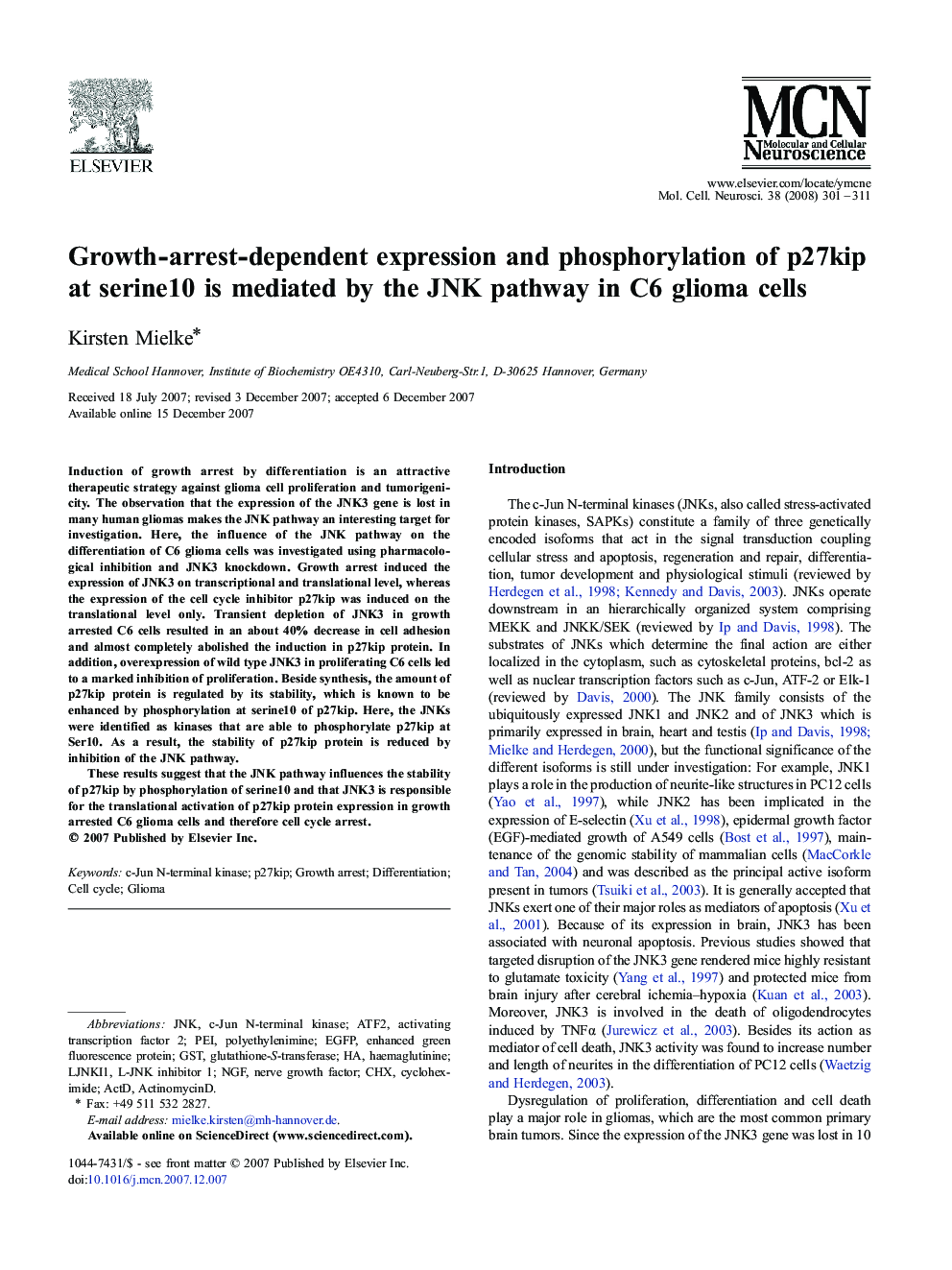| Article ID | Journal | Published Year | Pages | File Type |
|---|---|---|---|---|
| 2199037 | Molecular and Cellular Neuroscience | 2008 | 11 Pages |
Induction of growth arrest by differentiation is an attractive therapeutic strategy against glioma cell proliferation and tumorigenicity. The observation that the expression of the JNK3 gene is lost in many human gliomas makes the JNK pathway an interesting target for investigation. Here, the influence of the JNK pathway on the differentiation of C6 glioma cells was investigated using pharmacological inhibition and JNK3 knockdown. Growth arrest induced the expression of JNK3 on transcriptional and translational level, whereas the expression of the cell cycle inhibitor p27kip was induced on the translational level only. Transient depletion of JNK3 in growth arrested C6 cells resulted in an about 40% decrease in cell adhesion and almost completely abolished the induction in p27kip protein. In addition, overexpression of wild type JNK3 in proliferating C6 cells led to a marked inhibition of proliferation. Beside synthesis, the amount of p27kip protein is regulated by its stability, which is known to be enhanced by phosphorylation at serine10 of p27kip. Here, the JNKs were identified as kinases that are able to phosphorylate p27kip at Ser10. As a result, the stability of p27kip protein is reduced by inhibition of the JNK pathway.These results suggest that the JNK pathway influences the stability of p27kip by phosphorylation of serine10 and that JNK3 is responsible for the translational activation of p27kip protein expression in growth arrested C6 glioma cells and therefore cell cycle arrest.
